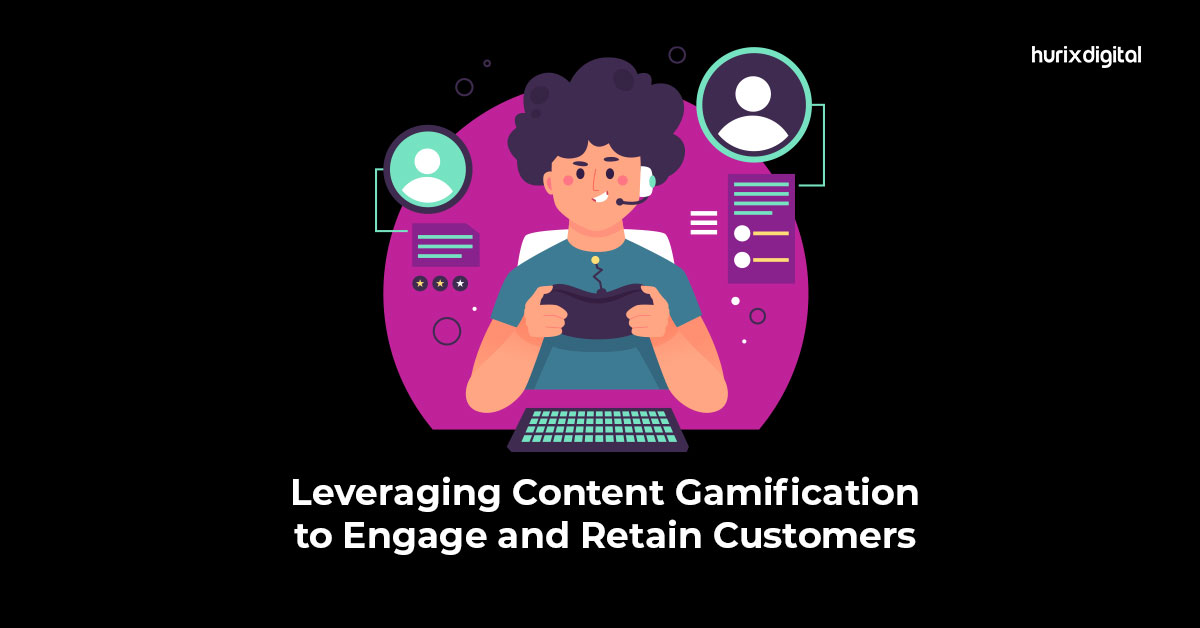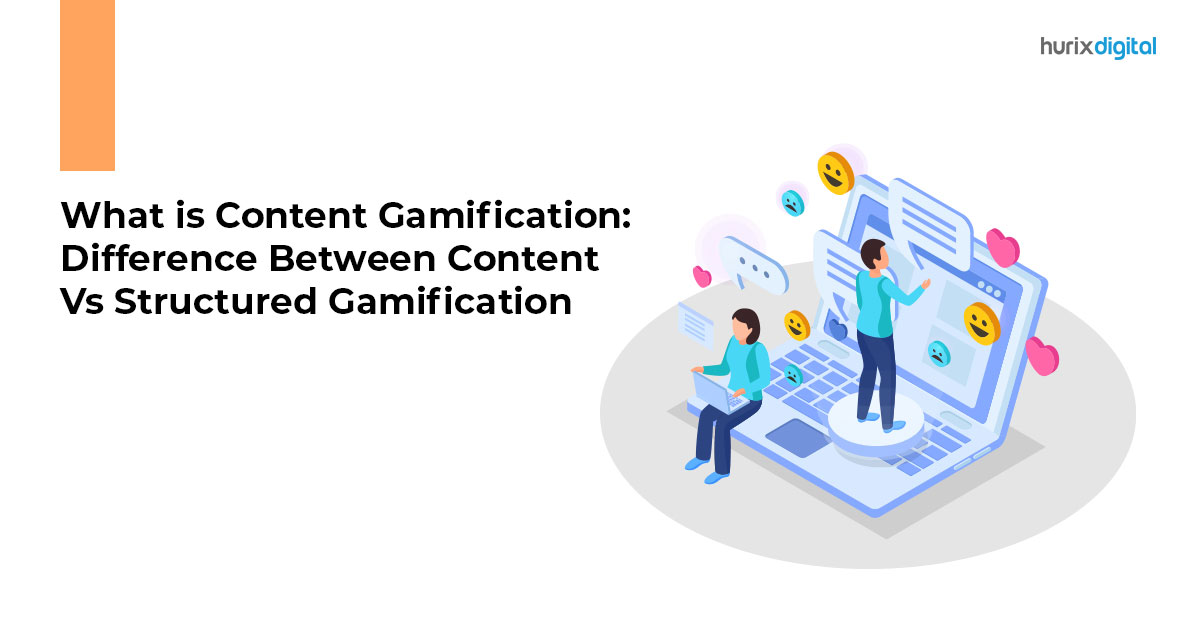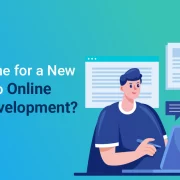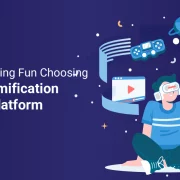
Leveraging Content Gamification to Engage and Retain Customers
Summary
Learn how content gamification can be used as a powerful tool to engage and retain customers, driving loyalty and enhancing user experiences.
In the current digitized world, businesses are growing at a fast pace due to numerous technological advancements. Consequently, the competition in the market is immense, and each business is struggling to engage and retain customers. Positive customer engagement not only provides a competitive edge to a business but also allows it to increase its sales through repeat purchases and recommendations.
If you are also looking to increase your customer engagement, you are at the right place. We are here to tell you how you can leverage content gamification to build strong relationships with your customers, gradually leading to business growth.
However, before we begin to talk about content gamification, let us first start with the basics. An enhanced clarity in terms of basic concepts will allow you to make well-informed decisions.
Table of Contents:
- What is Customer Engagement?
- What is Gamification?
- What is Content Gamification?
- Steps for Content Gamification
- Tips for Content Gamification
- Closing Thoughts
What is Customer Engagement?
Customer engagement can be understood as the interaction and relationship between the customer and any business. All businesses, big or small, undertake various customer engagement strategies to build a loyal customer base.
Positive customer engagement also builds brand loyalty allowing repeat customers and business growth. Statistics reveal that good customer experience can improve profitability by 2% and sales revenue by 7%.
Mentioned below are some strategies for customer engagement:
- Social media marketing
- Email marketing
- Survey forms and feedback
- Promotional deals and coupons
- Loyalty programs
- Newsletter subscriptions
- Reliable customer care services
- Content gamification
What is Gamification?
Gamification is the technique of incorporating gaming elements into a non-gaming context to make it more fun. Various gaming elements like reward badges, challenges, levels, quizzes, spin wheels, etc., can be added to make any context engaging and interesting.
For instance, numerous fitness apps in the market currently use gamification strategies to keep users motivated. Each time users complete a workout, they are awarded points and gift cards.
What is Content Gamification?
Content gamification is concentrated on incorporating game-like elements into content, both written and visual. One major example of content gamification is in K-12 education trends to keep students motivated.
Especially in subjects such as maths and science, where students struggle with low attention spans, gamification keeps them both engaged and interested. Rewards include virtual currency, points, or prizes and are used to encourage positive behaviors and academic achievement.
Similarly, content gamification is also used in marketing to attract customers, retain them, and keep them engaged. A business can create a game or interactive experience that promotes a product or service, offering rewards or discounts for participation.
Steps for Content Gamification
Do not immediately think about board games and digital video games when you begin to brainstorm ideas about content gamification techniques. Content gamification is much more organized and smaller and must be forward in a step-by-step order.
Here are some steps you can keep in mind to engage in content gamification:
Step 1 – Identify the Aims and Objectives
Before you implement a gaming strategy, you must identify your goals and objectives. Once you have recognized them, you can design your content and gamify it accordingly.
It is important to note that unrelated gaming elements can distract and confuse your potential customers. All the content gamification techniques should move forward in a step-by-step order allowing the customers to feel in control.
Step 2 – Gaming Elements
Do not try to incorporate all the gaming characteristics in one kind of content. Out of numerous gaming mechanics like quizzes, challenges, reward points, leader boards, victory badges, etc., select one or two you want to incorporate.
The choice of gaming mechanics will depend on factors like the age and gender of the target audience, the objectives, product/service type, etc.
Step 3 – Design the Game
Once the gaming mechanics have been decided, you can design the game. Ensure that the design is visually appealing and user-friendly.
The customer should be able to move ahead with the levels comfortably while being motivated to complete the game.
Step 4 – Test Run
Once the gamified content has been completed, you need to do a test run before launching it. This will allow you to identify faults, if any.
You can also ask others to test the content to gain feedback.
Step 5 – Launch, Promote, and Feedback
Once it has been successfully tested and bugs have been fixed, you can launch the gamified content. Relevant promotional activities like email marketing, social media posting, blogging, etc., must follow the launch. Lastly, your customers know the best.
You must collect feedback from your customers to measure the effectiveness of the content in achieving the desired goal. The feedback can be combined with data analysis collected through engagement metrics.
Tips for Content Gamification
Now that you know about the major steps involved in content gamification, here are some gamification strategy tips and techniques you can keep in mind.
These small but handy tips will help you to engage in gamification more effectively and efficiently. Forbes rightly reported about the White Castle campaign, which saw a 36% increase in conversion rates after the implementation of content gamification.
Start Slow and Small
It is very tempting to start with a bang and surprise your customers with new ideas and gamification strategies. However, this can prove to be a futile attempt. You must give your customers a chance to understand your objective and respond to it effectively.
Try not to overwhelm and confuse your customers through content overload. Start with something slow, small, and simple, and widen your scope according to customer engagement rates.
Review and Analyse Existing Techniques
Allow yourself to learn from what other market players are doing by closely reviewing and analyzing their techniques. Read multiple case studies to know what worked best for them and why.
Remember to recontextualize their strategies according to your content needs and customer base. Through thorough research, you will be able to back up your tactics with the information you learned.
Use the Right Technology
To leverage content gamification the right way, you must use the right technology. Technological advancements like machine learning, artificial intelligence, virtual reality, etc., can greatly enhance your gamification techniques.
As these technological mechanics are relatively new in the market, they have the potential to interest and surprise your customers, automatically leading to higher customer engagement.
Closing Thoughts
As a beginner, it can be a little overwhelming to deal with all this information related to content gamification. However, do not worry, as you do not have to make this journey alone. You can reach out to us at HurixDigital and get all the help you need.
We have till now helped various organizations and businesses achieve their goals through our various services like digital content solutions, digital content transformation, digital engineering & technology, and more.
Feel free to contact us and book a free demo.
Also Read – How to Deliver Gamified Content to Your Employees

Performance, Results, Growth, and Life-Long Learning define my professional life. I am passionate about making workplace learning planful, purposeful, and impactful. I take pride in partnering with clients and bringing them the best in learning design and creating solutions that address business challenges.




